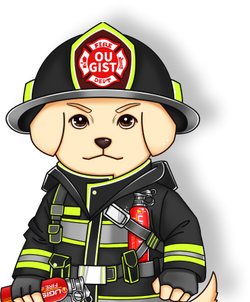Introduction: Fire extinguishers are invaluable tools for controlling and extinguishing fires in their early stages, playing a crucial role in fire safety. However, there are certain situations where using a fire extinguisher might not be the best course of action. In this blog post, we will explore scenarios in which using a fire extinguisher is not suitable and discuss alternative measures to take.

-
Electrical Fires: Electrical fires involve live electrical components. Using a standard fire extinguisher on an electrical fire can result in electric shock or the fire re-igniting once the power is restored. In such cases, it's important to immediately shut off the power supply and use a Class C-rated fire extinguisher specifically designed for electrical fires.

-
Oil and Grease Fires: Fires fueled by oil and grease, often found in kitchens, can be exacerbated by water-based extinguishers. Water can cause these fires to spread rapidly or even create a dangerous steam explosion. Instead, use a Class K-rated fire extinguisher designed for oil and grease fires, and remember to turn off the heat source whenever possible.
-
Chemical Fires: Chemical fires require specific extinguishing agents based on the type of chemicals involved. Attempting to extinguish chemical fires with the wrong extinguisher can lead to hazardous reactions. In such cases, evacuate the area immediately and call emergency services.
-
Gasoline or Flammable Liquid Fires: Fires involving gasoline, propane, or other flammable liquids can be extremely volatile. Using a fire extinguisher may not be effective, and the risk of explosion is high. In these situations, evacuate the area and call the fire department.
-
Large or Spreading Fires: Fire extinguishers are designed to handle small, contained fires. If a fire is large, spreading rapidly, or poses a significant threat, it's best to prioritize evacuation and call emergency services.
-
Lack of Training: If you're not familiar with how to use a fire extinguisher properly, attempting to fight a fire could be dangerous. Lack of training can lead to ineffective use or personal injury. In such cases, prioritize your safety and evacuate the area.


